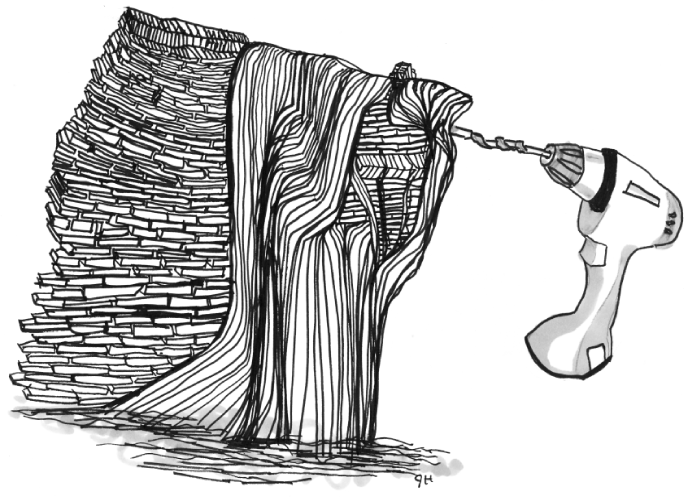During President Obama’s State of the Union Address on Tuesday, he spoke about the importance of American manufacturing and keeping college tuition prices low. He also used the opportunity to praise the recent surge in natural gas production across the U.S.
“We have a supply of natural gas that can last America nearly 100 years,” the president said. “And my administration will take every possible action to safely develop this energy.”
This was welcomed news for gas industry leaders, including Dan Whitten, Vice President of Strategic Communications for America’s Natural Gas Alliance. ANGA represents 30 of America’s largest gas producers, including big names like Chesapeake Energy and Cabot Oil and Gas. The groups they represent account for 40 percent of all natural gas production in the country.

Image by Jess Hock
Whitten said Obama’s remarks are representative of the tone in Washington towards natural gas exploration.
“We have always viewed natural gas as having a tremendous amount of bipartisan appeal because it improves air quality in communities across the nation,” Whitten said. “There’s an environmental benefit and there’s an obvious jobs and economic benefit.”
Shale gas is a booming industry, but overproduction has led to a steep decline in gas prices. The Wall Street Journal reports that gas prices have dropped 45 percent in the past year. This led Chesapeake Energy, which produces 9 percent of America’s natural gas, to scale back their wells.
Whitten says natural gas is a clean and cheap alternative to oil.
“Natural gas has lower emissions of things like sulfur dioxide, particulate matter and greenhouse gas constituents,” Whitten said.
Sandra Steingraber is a biologist who has studied the effects of hydrofracking on human health. She says that fracking is a fundamentally flawed and environmentally risky process.
“Fracking is inherently unsafe. It involves blowing up the bedrock under our feet, a landscape that nobodys seen pumping it full of inherently toxic chemicals and essentially opening up portals of contamination between the surface and these deep geological strata.”
She also says concerns about franking should go beyond the environment.
“The risks of fracking are not just the risks that we create through the chemicals and technology of fracking,” Steingraber said. “It’s the risk that we create by taking our investment dollars and pouring it into this dead end, 19th century way of blasting carbon out of the ground and lighting it on fire to keep the lights on.”
Despite the arguments of industry leaders and politicians that natural gas drilling creates needed jobs, Steingraber says they’re only temporary.
“The so-called jobsthat the gas drilling industry is proposing, they’re not going to be there when my ten-year-old has grown up. The gas will be gone and all that he’s going to be left with is a ruined landscape.”
With the public comment period over, New Yorkers are anxious to see what the Department of Environmental Conservation will do next. Despite many concerns, Whitten sees New York as a tremendous opportunity for natural gas exploration.
“New York uses five percent of all natural gas that this country uses. It’s the fourth largest natural gas user. It is a tremendous opportunity for New York and New Yorkers in terms of jobs, the economy, and the environment.”
Steingraber believes the state should aim higher for a solution to its energy needs.
“The same state that boasts the iconic empire state building, the world’s tallest green building, can do better than blow up shale to get out methane to run our economy,” Steingraber said.
This story originally aired on Jan. 29, 2012 on WICB’s Ithaca Now.
